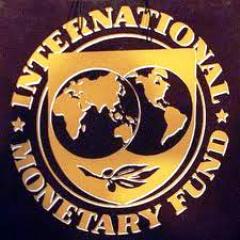Sudanese economist warns against IMF economic recipes
March 30, 2014 (KHARTOUM) – A Sudanese economist warned the government against the “disastrous” consequences of applying International Monetary Fund (IMF) policy recommendations without ensuring their financial support.
 In an interview with the pro-government Al-Rayaam newspaper, Al-Tijani Al-Tayeb criticised Khartoum for agreeing to enter into the Staff-Monitored Program (SMP) with the IMF for 2014 as was announced on Thursday.
In an interview with the pro-government Al-Rayaam newspaper, Al-Tijani Al-Tayeb criticised Khartoum for agreeing to enter into the Staff-Monitored Program (SMP) with the IMF for 2014 as was announced on Thursday.
An SMP is an informal agreement between country authorities and IMF to monitor the implementation of the authorities’ economic program. SMPs do not entail financial assistance or endorsement by the IMF Executive Board.
Al-Tayeb said that Sudan’s experiences with the IMF over the last 17 years demonstrated the failure and uselessness of its programs and resulted in a worsening economic situation.
He noted that the SMP is administered by IMF bureaucrats without backing from its Executive Board and carries no promises of loans.
The IMF said in its press release that Sudan remains unable to access IMF resources because of its continued arrears to the IMF.
The Sudanese economist said that IMF policies are focused on making the exchange rate a floating one which would weaken the local currency further and cause astronomical increase in inflation that would inflict “unimaginable” hardship on the people.
He said the government should have implemented a dual exchange rate: one for basic commodities and another for luxury goods.
Sudan has been struggling with what was described as an economic shock following the loss of the oil-rich south in July 2011. Oil revenues constituted the majority of Sudan’s exports, national income and source of hard currency.
The Sudanese pound has lost more than half of its value pushing inflation rates to record levels given that the East African nation imports most of its food. In the black market, one US dollar was selling for 8.5 SDG compared to 8.2 at the end of February.
The official exchange rate is around 5.7 pounds to the dollar.
In its statement, the IMF also expressed concern over the growing burden presented by Sudan’s external debts.
“Sudan’s external debt is high and largely in arrears, cutting off the country from access to most external financing sources. In particular, Sudan remains unable to access IMF resources because of its continued arrears to the fund,” the statement said.
“A strong track record of maintaining macroeconomic stability and implementing reforms, together with a comprehensive arrears clearance strategy supported by development partners, will be essential for resolving Sudan’s large debt overhang,” it adds.
Last year, the IMF said that Sudan’s debt will hit $44.7 billion in 2013 which amounts to 87.6% of its Gross Domestic Product (GDP). It urged Sudan at the time to work with South Sudan on the issue of debt that existed under the pre-secession Sudan, which has currently been inherited by Khartoum.
“In light of Sudan’s large stock of overdue external debt obligations, the government should work closely with South Sudan as part of the recently signed comprehensive agreement on reaching out to creditors to elicit their support for comprehensive debt relief, given the approaching deadline of the ‘zero option’ for debt apportionment,” the IMF said last year.
Sudan and South Sudan agreed to work jointly on seeking debt relief from international creditors. If these efforts are unsuccessful the ex-foes will sit down again to decide on how to split the debt.
(ST)
